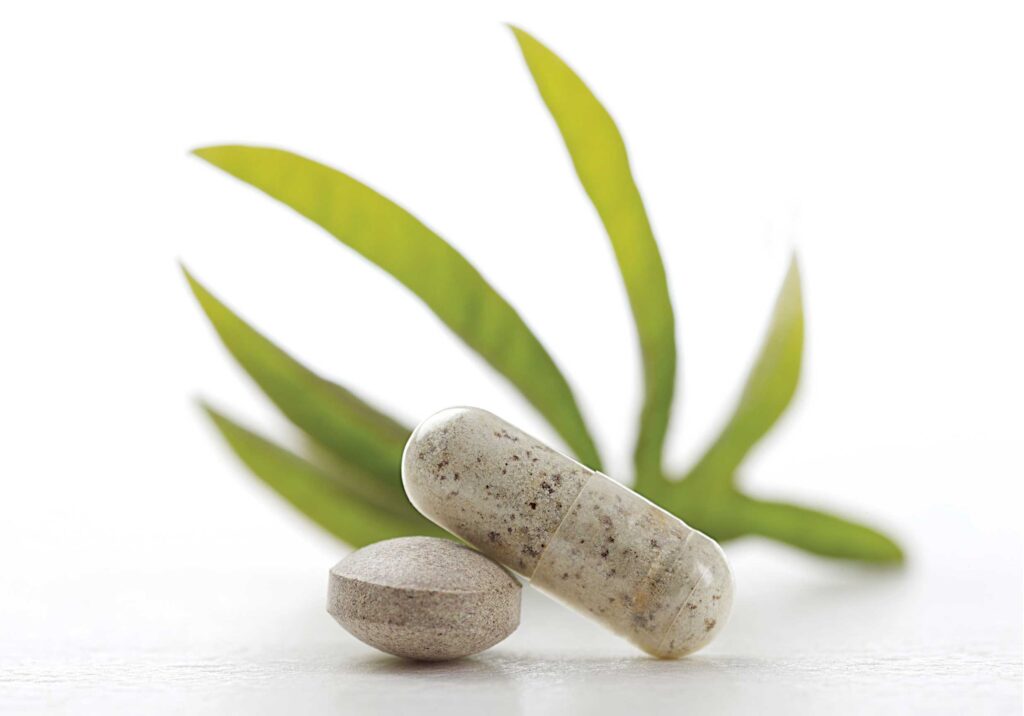Advertisement
10 Supplements That Can Benefit Almost Anyone
Which ones are right for you—really?
Fact-Checked
This article has been written and fact-checked by experts in the field.

Multivitamin
Shopping for supplements is a lot like shopping for a new bathing suit: there are tons of options, and one size never fits all. Do you really need to bother? (Spoiler alert: yes!) These top 10 supplements won’t give you a killer beach body, but they might be the perfect fit for you.
Millions of Canadians pop a multi every day. Although it won’t necessarily stave off chronic diseases, a daily multivitamin provides essential nutrients you may be missing. This is true even if your diet is full of kale salads and green smoothies, as we need 40-plus nutrients each day.
Advertisement
What to look for:
Find a multi that targets your specific demographic—for example, a prenatal multivitamin if you’re an expecting mom.
Advertisement
Who might benefit:
- pregnant or breastfeeding women
- people over age 50
- vegans and vegetarians
- kids, especially picky eaters
Calcium
Yes, calcium strengthens your bones and teeth. But it’s not a one-trick pony. The most abundant mineral in your body, calcium may also lower blood pressure and protect against some cancers.
Advertisement
What to look for:
Check the amount of “elemental” calcium in each tablet. Calcium is best absorbed when taken in small doses—500 mg or less—with food.
Advertisement
Who might benefit:
- vegans and those who avoid dairy
- people with celiac or inflammatory bowel disease
- people with high-protein or high-sodium diets
- kids, especially young girls
- people over age 50
Magnesium
Magnesium might seem like a mundane mineral, but it’s pretty miraculous. Some studies suggest that it can lift energy levels in those with depression. Magnesium is also tied to sleep, and even a marginal lack of this mineral can make you less likely to sleep soundly. Ladies, take note: magnesium has also been shown to ease PMS symptoms, including bloating and insomnia.
Advertisement
What to look for:
Check the amount of “elemental” magnesium listed on the product’s label. Take a B-complex vitamin with magnesium to increase the latter’s absorption.
Advertisement
Who might benefit:
- PMS sufferers
- people with digestive disorders
- people over age 50
Iron
Iron deficiency is a surprisingly serious problem in Canada. According to Statistics Canada, 8 percent of women show signs of lacking this essential mineral. If you appear paler than usual and feel exhausted for no reason (even if you’re physically fit), low iron might be to blame. Be sure to check with your health care practitioner to check your iron status.
Advertisement
What to look for:
Ferrous iron is better absorbed by the body. Take your iron supplement with a source of vitamin C, such as strawberries, cantaloupe, broccoli, or bell peppers, to help improve absorption.
Advertisement
Who might benefit:
- women of childbearing age
- people who work out at a high intensity
- people with gastrointestinal disorders
- vegans and vegetarians
Omega-3 fatty acids
Omega-3s are fab fats, helping to lower your risk of heart disease, stave off joint stiffness, and curb inflammation. Plus, upping your intake of omega-3s might even make you feel happier.
Advertisement
What to look for:
Don’t favour fish? Not to worry—many omega-3 supplements are plant based. In addition to good old gel capsules, you can now find liquid omega-3 supplements in flavours such as chocolate and strawberry.
Advertisement
Who might benefit:
- people with heart disease
- most adults
Vitamin D
Reality check: one-third of Canadians have vitamin D levels below what’s considered necessary for healthy bones. Because vitamin D is found in so few foods, our main source is sunshine. In winter—and even in summer, if you can’t get 20 minutes of daily sunshine—supplements are a must. (Bonus: getting enough vitamin D may even improve your athletic performance.)
Advertisement
What to look for:
Vitamin D supplements come in two types: D2 and D3. Go with vitamin D3, which is slightly easier to absorb.
Advertisement
Who might benefit:
- men and women over age 50
- people living in northern latitudes
- people with dark skin tones
Did you know?
Your body’s ability to make vitamin D from sunshine plummets as you age. When you hit 70, you’ll make just 25 percent of the vitamin D you produced at age 20.
B-complex vitamin
The B-complex family includes eight vitamins, all of which work together to convert the food you eat into fuel for your body. A lack of B vitamins, such as B12 and B6, has been linked specifically with poor mood. Because B12 is found mainly in animal products, vegans and vegetarians might need an extra boost.
Advertisement
What to look for:
Make sure your B-complex contains at least 100 percent of the recommended daily allowance (RDA) for each of the eight B vitamins.
Advertisement
Who might benefit:
- vegans and vegetarians
- men and women over age 50
Probiotics
The darling of the supplement world, probiotics are used to prevent gas, cramping, and other unsavoury side effects of antibiotics. Probiotics replenish healthy bacteria in your body and help restore digestive balance.
Advertisement
What to look for:
Choose a probiotic strain that’s suited to your health needs. Plus, make sure the label includes
- the recommended dose
- the amount of live organisms at the use-by date
- the genus, species, and strain (e.g., Lactobacillus rhamnosus GG)
Advertisement
Who might benefit:
- those with digestive disorders
- people taking antibiotics
CoQ10
An antioxidant, coenzyme Q10 (CoQ10) is best known for helping to treat heart-related conditions such as chronic heart failure and high blood pressure. Its other benefits include boosting energy and helping you recover more quickly from exercise. CoQ10 might even help smooth your skin and minimize fine wrinkles.
Advertisement
What to look for:
The ubiquinol form of CoQ10 seems to be better absorbed. Take it in the evening, with a meal that contains fat, to help your body absorb its antioxidant goodness.
Advertisement
Who might benefit:
- people over age 50
- people with heart conditions (after checking with a health care practitioner)
- frequent exercisers
Glucosamine and chondroitin
This dynamic duo is often combined in one supplement to relieve joint pain in those with osteoarthritis. Some runners and other athletes have found that this combo also relieves exercise-induced knee pain.
Advertisement
What (not) to look for:
Glucosamine supplements are often made from shellfish, so avoid them if you have a shellfish allergy.
Advertisement
Who might benefit:
- people with osteoarthritis
- runners and other athletes
The more you know
Always check with your health care practitioner for proper dosing and safety instructions before taking any new supplements.





